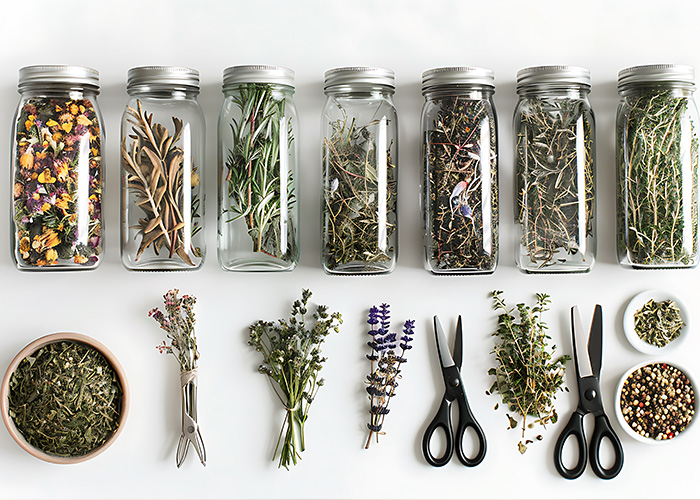How to Preserve Herbs
How to deal with your bumper crop of herbs this spring.
Spring threw us a snowy curveball but now were right back in the growing season.
Did you maybe over-plant and underestimate your garden’s growing power? Do you now have more bushels of basil than you could ever (even in your wildest Italian dreams) eat?
We have solutions:
For your convenience we have split your harvest into three main groups:
Soft herbs, like: Basil, Mint, Origanum, Parsley, Sage and Rocket (aka Arugula).
Simply make a few pots of pesto! Basil and rocket are the classics, but all soft herbs can be preserved in this way.
- Making your own homemade pesto is much easier than it sounds and if done properly, it can last in the fridge for a fair amount of time.
- You can also chop them up and freeze them in an ice tray filled with olive oil. Next time you are cooking, simply pop out a few cubes and use it as flavoured cooking oil.
- You can even make up a batch of mint jelly for your next lamb roast…
Alliums like: Onions, Garlic, Scallions, Shallots, and Chives.
There are two ways to deal with an excess of Alliums. “Pickle” or dry them.
- A cheat way to pickle small onions, garlic cloves, scallions and shallots is to have the professionals do the hard work for you. Simply take that half empty pickle jar in your fridge and pop your produce into it. We suggest blanching, or at least rinsing them with boiling water to make sure they are clean.
- Whole Garlic bulbs and large onions, shallots or scallions can also be left in their papery skins (just brush off excess dirt, don’t rinse them) and hang them up, with leaves braided together, to dry until you want to use them. The flesh will remain soft and ready to slice because the outer leaves will protect it.
Hard herbs like: Thyme, Rosemary, Coriander that has gone to seed and Lavender.
These are great for at home drying.
- Simply cut your herb stalks, rinse them well and then lay them out on large trays or pieces of foil/wax paper. Lay another piece of paper towel, foil or wax paper over the top to protect them from dust and keep them in a cool dry space until their leaves and stalks are dry and brittle. Break them up and store your dried herbs in glass jars or other airtight containers.
For step-by-step tutorials on all these preservation methods, see these handy links:
The pioneer woman: preserving herbs in oil
How to turn any herb into a pesto
At homemakers we strive to live the zero-waste life, so don’t let your hard-grown herbs go to waste. These are handy, frugal and delicious ways to use them all year round!



